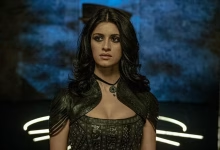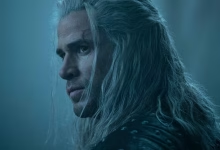The Witcher Season 3 Ended As It Began—Messily
Henry Cavill’s last season as Geralt of Rivia has come and gone, and I don’t know where the Netflix series is going next
I sat down to watch the last three episodes of The Witcher season three with an open mind. Though I, like others, have been frustrated with the series’ pacing and direction as of late, I saw shining moments in both character development and action in the latest season, and was hopeful the series would stick the landing for Henry Cavill’s final run as its lead.
Unfortunately, as the screen faded to black at the end of the last episode, “The Cost of Chaos,” I felt mostly apathy. Now what?
The Witcher Netflix series has courted controversy and driven discourse since it was announced back in 2017. The show’s based on Polish writer Andrzej Sapkowski’s fantasy series that inspired the CD Projekt Red game franchise of the same name, and fans of The Witcher are as passionate as they are resistant to change. The casting of Cavill as protagonist Geralt of Rivia helped, as the actor is an outspoken fan of both the books and the games. Though fans have (wrongfully) lamented even the smallest of deviations from the novel and (rightfully) complained about the show’s strange pacing and subsequently confusing plot, it’s done fairly well for Netflix since its 2019 debut.
But when Cavill announced he’d be leaving the show after season three and replaced by The Hunger Games’ Liam Hemsworth, things got rocky again. Rumors swirled that the showrunners were deviating too much from the books, causing Cavill to leave out of frustration (the real reason for his departure is still unknown). After the first half of the season debuted, views were reportedly down and fans had a lot to say about it, and a producer recently blamed young American viewers for it. But, the second half of the season would bring a big mage battle, and producers promised Cavill’s transition into Hemsworth would be seamless and “meta.” So, how did The Witcher season three ending do?
The Witcher season three finale recap
In short: meh. After the battle of Aretuza, which was pretty damn good, too much time is spent lingering on spaces and places that serve little narrative purpose, reminding us yet again of The Witcher’s main problem: pacing. The series has made notoriously strange choices on who and what it centers and explains, resulting in a show that at times feels like it’s dragging you through hundreds of years of dense history by the scruff of your neck, hand-waving away key people and moments, and at others like you’re stuck listening to a tertiary character tell their entire backstory over a seemingly endless pint of beer.
As someone who has read all of the books, there were far too many times that I asked aloud “Who is that again?” The series can be so convoluted that I wonder if my knowledge of the lore is harming more than helping, as I struggle to recall events that happened seasons ago and wonder if I’m actually remembering something from the books. Does the casual viewer remember who Emperor Emhyr really is? Do they get why Francesca Findabair would return to Nilfgaard after the way she was treated by them?
And the pacing problems persist in the last few episodes of The Witcher season three. Ciri spends nearly an entire episode in a desert, and while that is definitely a lengthy bit in the books, it eats up precious time in the tail end of the season. It’s not until the end of the penultimate episode that we see Geralt again, and he’s barely alive. Cavill spends a large chunk of his last moments on the show lying prone in the forest of Brokilon, his eyes ringed by an unhealthy tinge of pink, grunting and groaning in pain.

His final battle, in which he takes on an entire troop of Nilfgaardians demanding bribes at a roadblock, is at least emblematic of Geralt’s decision to no longer remain neutral—he quite literally leaves Renfri’s brooch behind; if you recall, he got it in season one during the famed Blaviken fight that caused him to double down on remaining neutral in the Continent’s wars. Geralt has chosen a side, and it’s whatever side guarantees Ciri’s safety. A nice bit of character development, though it feels like we’ve tread this path before.
At least the final moments of season three set us up for what will be a fantastic, Ciri-led fourth season in which she’s embraced the power of Falka and goes on a queer, riotous rampage with a bunch of teenage dirtbags called the Rats (though it’s clear that her decision to introduce herself as “Falka” confused viewers, as the question “why does Ciri call herself Falka” is trending). The core story of The Witcher is Ciri’s, not Geralt’s or Yennefer’s, despite what fans may believe or desire. But I was shocked to see that the last glimpse we got of Cavill’s Geralt was that Nilfgaard fight, considering the producers teased a “meta” transition to Hemsworth. How the hell can you do that now?


